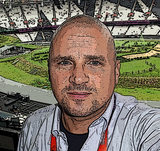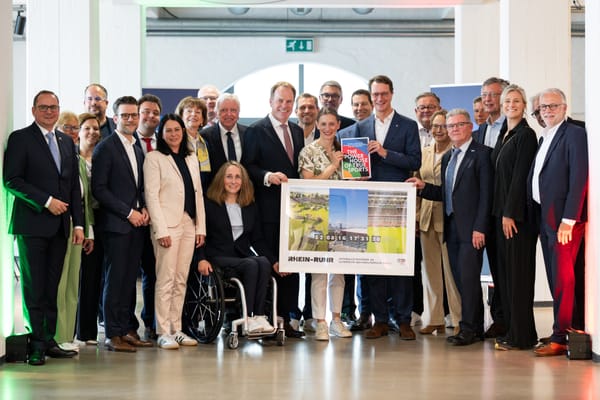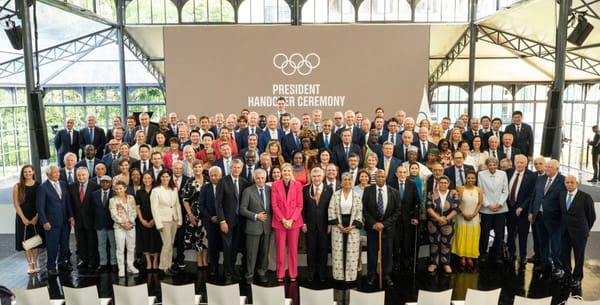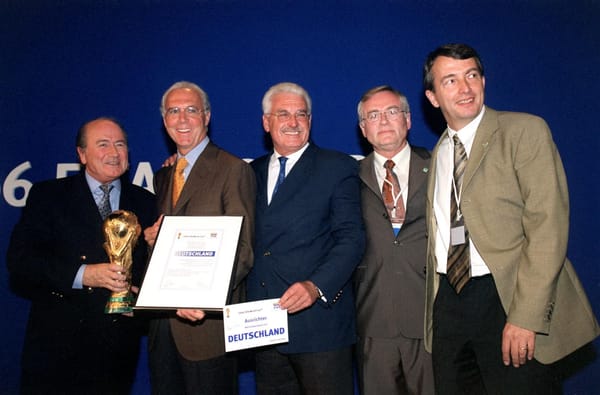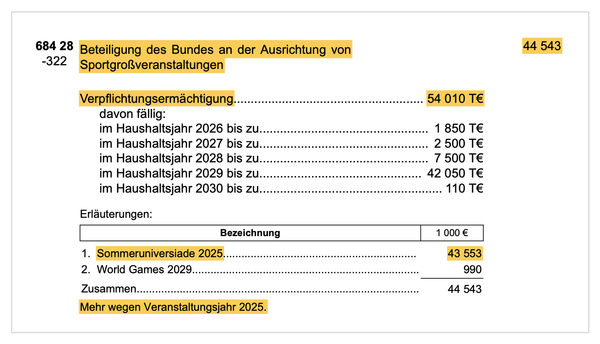The playbook that keeps Thomas Bach in power at the IOC
Thomas Bach has been re-elected as IOC President for a final term without any opponents or opposition. Using Bach’s doctoral thesis as a departure point, Jens Weinreich describes how constantly planning for the future has provided Bach with an unprecedented hold on power in the Olympic system.
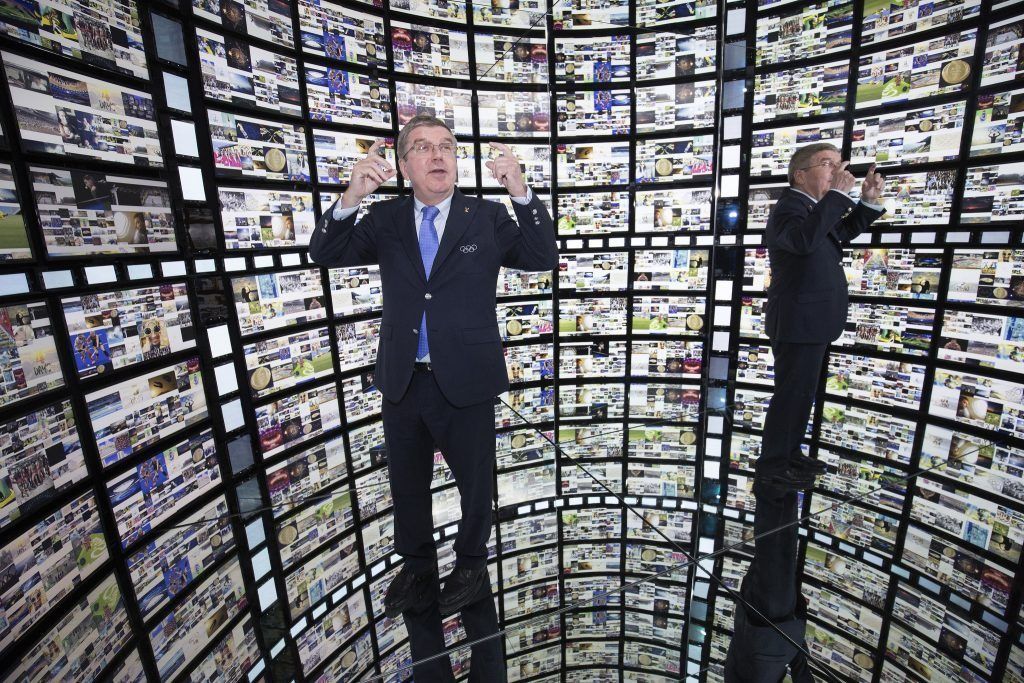
The German National Library has two branches. One in Frankfurt am Main, where the German Olympic Sports Confederation (DOSB) and numerous sports associations are based. There is a second branch in Leipzig, the city that applied in vain for the 2012 Summer Olympics – and which was once the intellectual centre of GDR sport, along with its criminal excesses.
Some years ago I went to Leipzig to get closer to the man who was already playing a central role in world Olympic sport back then. The man I had been observing for more than twenty years, whom I researched, and about whom I had reported extensively.
So I ordered Thomas Bach’s doctoral thesis from the German National Library.
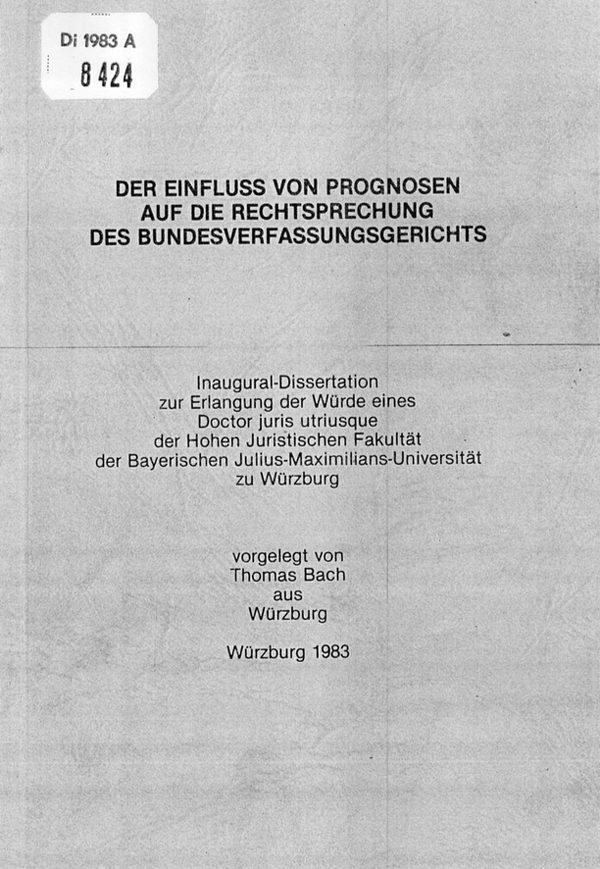
Then the little book that had interested me for a long time finally lay in front of me. Lime green cover. 211 pages. Signature Di 1983 A 8224. Nobody had asked for it for thirty years. The booklet seemed virgin, untouched. Neither side of this “Inaugural dissertation to obtain the dignity of Doctor juris utriusque of the High Law Faculty of the Bavarian Julius Maximilians University of Würzburg” was broken. The author: Thomas Bach, born on December 29, 1953 in Würzburg “as the son of the businessman Andreas Bach and his wife Maria”.
It is a very dry piece of work that Bach dedicated to his “dear wife” Claudia and submitted to Professor Georg Brunner. Oral exam on July 7, 1983. Doctorate on July 22, 1983, seven years after his Olympic victory with the German foil fencers in Montreal. Title of his doctoral thesis: “The Influence of Forecasts on the Jurisprudence of the Federal Constitutional Court”.
But Bach actually dealt with politics. In this dissertation, patterns and storylines shimmer through that have shaped Bach’s sport-political work ever since. For 38 years, whether as DOSB president, politician (he was involved in the Liberal party FDP for several years and is still a member), business lobbyist (for corporations such as Adidas, Holzmann, Siemens or MAN Ferrostaal) or as the highest Olympic dignitary on the planet.
“The doctoral thesis was about the interfaces between law and politics,“ Bach told me in Buenos Aires in 2013, shortly before he reached his goal and became President of the International Olympic Committee (IOC).
“It was about the mutual creative leeway. That interested me.”
The need to constantly plan for the future
In his dissertation, Bach dealt with the question of how forecasts can determine the course of things. Whether the case law of the highest German court, the Federal Constitutional Court, or the decisions of politicians – and later on sports politicians. The forecasts have to sound professional. This is how the desired results can be organised. You just have to want it and do it skilfully enough. This is how luck can be forced – and politics.
Bach quoted the French author Bertrand de Jouvenel extensively. “The political decision is an attempt to influence the future state of the world,“ de Jouvenel wrote once.
“Such an attempt entails calculating in advance what the effect of the decision will be; one therefore takes into account facts that will arise or coincidences.”
The then 29-year-old Bach wrote:
“Political disputes are mostly about the correct assessment of the future. In order to survive this dispute and to meet the demands of modern politics, extensive political foresight is required. The politician has to get an idea of the eventualities and at the same time be prepared for the unexpected. These needs are to be met by constantly creating new plans and political programs and continuously updating them. Planning for the future, however, also requires knowledge of future developments.“
Fascinating: This passage reads like the instructions for his later work.
Like a playbook, to use a current Olympic term.
A very special playbook.
Rationality. Always new plans and political programmes. Constant updating – that is precisely Bach’s policy.
- In 2009 he basically prepared his candidacy for the IOC presidency with a speech at the Olympic Congress in Copenhagen.
- In 2013 he published his manifesto for the IOC election campaign on that basis.
- In 2014 he let the IOC session pass his Agenda 2020.
- In 2021, a few days before his re-election, the IOC presented another agenda with the strangely absurd title Agenda 2020+5.
The first point in this latest paper is: “The Olympic Movement: turning challenges into opportunities.”
That can be the motto for the life of the IOC President.
Turning challenges into opportunities
Bach grew up in modest circumstances, his father died early, and his controversial fencing coach Emil Beck assumed a kind of father role.
Bach became successful, won an Olympic gold medal with the German team, received his doctorate, and got his sports-political education under Horst Dassler, the inventor of modern sports corruption, and then IOC president Juan Antonio Samarach, another role model for the Frankonian. At times Bach was fascinated by politics and power, as well as, yes, money. Bach was a hyper-ambitious climber.
“Creative leeways” was one focus of his dissertation. “Turning challenges into opportunities” is what the latest agenda says.
Do you see the connections?
Much of these papers, which are called Agenda something, are dazzling. Some things are propaganda, some parts are new, some things make sense. But Bach could have tackled almost anything many years earlier. If he had wanted to. But in some cases he did the opposite. In many functions, for example, he ensured that the bidding race for the Olympic Games turned into a gigantic monopoly in which the technically best candidate almost never won.
This competition of cities and nations, always held in the odd years between the Olympic Games since the beginning of the 1990s, had to fail at some point.
Now, in dire straits, when one candidate after the other failed in referendums in democratic nations, Bach made the opposite – and his disciples suddenly sold it as a revolution.
Revolution. Evolution. Evolution of the revolution. Unity. Diversity. Unity in diversity. These are Olympic buzzwords that Bach and his propaganda department are flooding the world with.
Or, regarding the Corona Games in Tokyo: There will be an Olympic light at the end of the tunnel.

